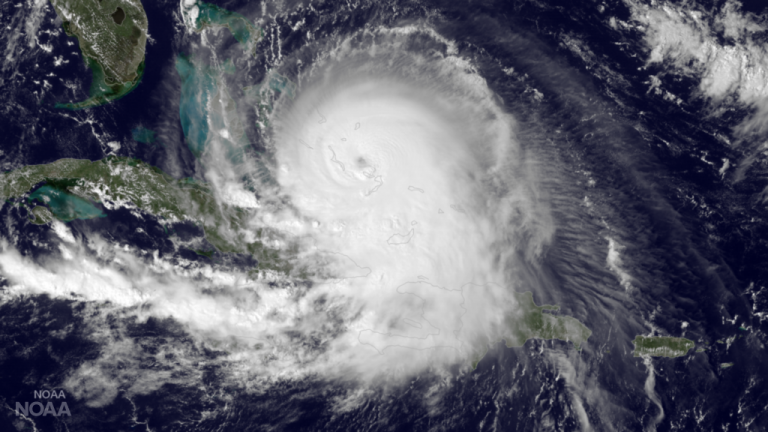Deadly Erika, Joaquin retired with Patricia as tropical cyclone names

Category 4 Hurricane Joaquin in the Bahamas as seen by the GOES East satellite at 1900Z on October 1
The organization that names tropical storms and hurricanes says it will retire the names Erika, Joaquin and Patricia following the 2015 season.
The World Meteorological Organization announced Monday that Elsa and Julian will be used for future storms in the Atlantic, while Pamela will be used in the eastern North Pacific.
The organization reuses storm names every six years, meaning the new names might first be used in 2021. Names are retired when a storm is so deadly or costly that its future use would be insensitive.
NOAA’s National Hurricane Center issues tropical cyclone forecasts and warnings for both the Atlantic and eastern North Pacific basins.
Tropical Storm Erika was directly responsible for 30 deaths on the Caribbean island of Dominica and one in Haiti.
Hurricane Joaquin took the lives of 34 people, including the 33 crewmembers of the cargo ship El Faro, which sank as it passed through the Bahamian archipelago. According to NOAA historical records, Joaquin is the strongest October hurricane to have impacted Bahamas since 1866.
New Jersey largely dodged significant damage from the storm as the state did not experience a direct hit.
But tropical moisture associated with the hurricane caused widespread street flooding and beach erosion at the Jersey Shore. In North Wildwood, a vacant house in a remote low-lying area battered by wind and surging water was swept away.
Hurricane Patricia eventually became the strongest hurricane on record in the Western Hemisphere.
According to NOAA, Patricia is the 13th name to be removed from the eastern North Pacific list. In comparison, Erika and Joaquin are the 79th and 80th name to be removed from the Atlantic list.
Hurricane experts expect the 2016 season to feature “near-aveage” activity, although they emphasize that “there is large uncertainty” in the prediction, particularly due to a a current weakening El Niño likely to transition to either neutral or La Niña conditions by September, according to a report issued by Colorado State University
The report advises coastal residents that it only takes one hurricane striking the coast “to make it an active season for them.”
—————————————————————-
The Associated Press contributed to this report.
WHYY is your source for fact-based, in-depth journalism and information. As a nonprofit organization, we rely on financial support from readers like you. Please give today.

